Experiment: 10 things that I learned, using only water for a month
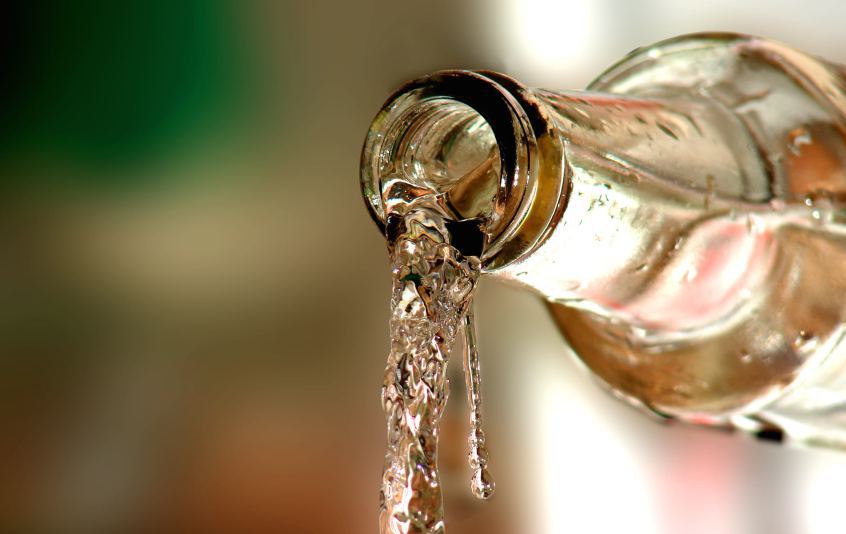
We continue to acquaint you with the translations of Chris Bailey's articles, where he shares the tips that he learned during the “a Year of Productivity” project . We have previously published articles by this author, they are available in our blog in the "personal productivity" section . We want to remind you that the common goal of all articles is to share the author’s experience of how to become more successful and effective everywhere: in your personal life, relationships with friends, yourself, and of course at work (whatever you do)!
So we give the word to Chris!
')
For a whole February, I drank only water as an experiment to increase my productivity. I did not drink a drink on the basis of coffee before training, did not drink tea at noon, did not drink red wine on Valentine's day and alcohol on my girl's birthday. The most unusual thing I drank the whole month was a cup of hot water with lemon.
To tell you the truth, I did not expect that this experiment will teach me a lot, but looking back, I understand that I have learned a lot of things. This article is long, but I know you will learn a lot from it, and I tried to make the information as accessible as possible.
Without further ado, here are 10 lessons that I learned when I drank only water for a whole month!
10. Every day you drink as many as 400 calories!
The average person drinks 400 calories every day! [one]
Simple arithmetic is enough to calculate how drinking more water will help you lose weight. To lose about 450 grams of weight, you need to burn (or lose) 3500 calories, although this figure depends on your metabolic rate and how much fluid and muscle you lose when you lower your calorie intake. [2] This means that if you drink only water (or drinks without calories), then after 9 days you will lose about 450 g of weight. This is equal to the number of calories your body burns while jogging at a speed of 8 km / h in 30 minutes daily for 9 days!
Weight loss is not so easy, but drinking water is one of the easiest ways to cut calories.
Drinking water will not only help you to reduce the consumption of harmful high-calorie drinks, but also helps suppress your appetite, as a result of which the amount of calories in your diet also decreases.
9. Find out the main triggers that motivate you to drink something.
I think one of the key factors in changing your habits is an awareness of what drives your behavior. Spend a second to ask yourself why you are being pulled by something other than water — this is a good way to force yourself to drink more wholesome drinks.
There is always a reason why you drink a particular drink, or why you drink too much during the day, and you should be aware of whether it is beneficial to your health or not. Personally, I can find 8 reasons why you drink other drinks besides water (if you know other reasons, voice them in the comments and I will add them to the article!):
- Social (for example, you are at a party or ordering coffee for a company with someone).
- To increase the amount of energy (drinks with caffeine or sugar).
- For pleasure (for example, a cool beer after a long working day).
- Nutritious (drinking water to saturate the body with fluid).
- For health (for example, protein shakes or fruit smoothies).
- Because of addiction (for example, you are used to caffeine or sweet drinks).
- For fun (for example, you decide to drink a collection bottle of red wine).
- For relaxation (for example, a cup of herbal tea in the evening).
When you get the idea to drink something that is not useful for yourself, perhaps there is a substitute that will satisfy your need in the same way, but without harm to health.
Another wonderful way to control what you drink is to pay attention to the stimulants that make you use one or another drink. They can always be attributed to one or more of the five categories: a specific time of day (for example, morning), a certain place (for example, Starbucks), the presence of certain people (for example, colleagues), a certain emotion (for example, a feeling of lack of energy), or behavior which has become a ritual (for example, awakening from a dream).
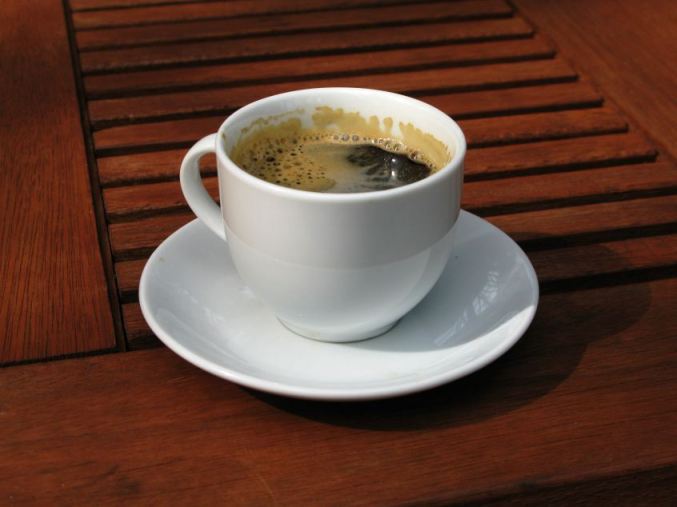
8. Caffeine increases the effectiveness of sports
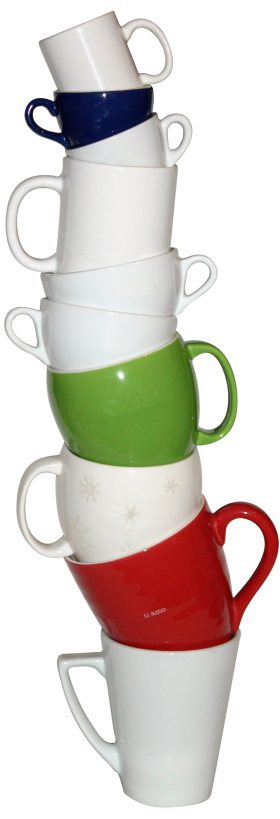 It was found that caffeine significantly improves athletic performance, possibly because more than two thirds of 20,000 Olympic participants found blood caffeine after the World Anti-Doping Agency removed it from the list of prohibited substances. [3]
It was found that caffeine significantly improves athletic performance, possibly because more than two thirds of 20,000 Olympic participants found blood caffeine after the World Anti-Doping Agency removed it from the list of prohibited substances. [3]According to studies, caffeine significantly increases the productivity of both aerobic and strength training:
- It has been proven that caffeine increases the amount of fatty acids circulating in the blood, which allows people to run longer or pedal [4] longer, and therefore significantly increases endurance in sports such as running and cycling.
- In one study, weightlifters performed many more repetitions than participants who took a placebo, and also reported that they subjectively felt much less tired and, most interestingly, were not opposed to repeating the entire training again soon. [5]
Although the researchers did not come to a definite conclusion about how much caffeine should be consumed before training, I usually use 100-150 mg of caffeine with a drink, which I drink before exercise. During the experiment, I noticed that without caffeine, it is much more difficult for me to work.
7. What you drink has a great effect on your energy levels.
Caffeine increases the amount of energy, but you lose it after just a couple of hours. Drinks with sugar do the same, but at the expense of a sharp increase in blood sugar levels. Alcohol depresses you, and although it helps to become more creative, I insist that all the positive effects are negated, because you lose concentration and feel confused.
During the experiment, I was surprised at how stable my energy level became after I eliminated caffeine, sugar and alcohol from my diet. Looking back, I see that this has increased my productivity.
What you drink greatly affects your energy levels. Especially when this energy serves as a fuel that burns for the sake of your productivity throughout the day, it is worth reducing your dependence on sugary, caffeine, alcoholic beverages in order to better manage your energy during the day.
6. Food also has a very strong influence on your energy levels.
Like drinking, food strongly influences your energy. During the experiment, when I eliminated all the caffeine, sweet and alcoholic beverages from my diet, I was able to understand how the food itself affects my energy.
Interestingly, during the experiment I found several ways to eat food, which gave me much more energy for my business.
- Eat smaller portions and more often. I think the most effective way to get more energy from food is to eat in smaller portions and more often. Think of your energy supply as a fire that burns all day. It is much easier to keep the fire going when you throw small firewood at it more often than when you throw five large logs at a time.
- Stay away from sweet foods that increase blood sugar levels and then lead you to decline.
- Slow down. It takes 20 minutes for your brain to understand that your body is full, so slow down! [6] When you eat too much at a time, you first increase your energy level, and then run out of steam ahead of time, which affects concentration and productivity during the day.
- Constantly ask yourself if you are hungry. During the experiment, I constantly asked myself whether I was hungry, and this protected me from impulsive, mindless overeating.
If you are serious about squeezing the maximum productivity out of your daily routine, I think you should also use these tactics.
5. Coffee / tea also saturates the body with liquid, like water.
When I was researching for this article, this fact surprised me the most.
Caffeine drinks, like tea or coffee, are usually considered dehydrating, but for me this myth has been debunked; it turns out, "the laxative effect (exerted by caffeine) does not interfere with water saturation." [7] At the same time, alcohol really dehydrates, and experts recommend drinking at least an equal amount of alcohol in the amount of water. But this is not the case with caffeine drinks, especially if you drink them regularly. [eight]
4. Do not forget to be grateful for all that you have
 There are things in your life, like electricity or the Internet, that have become so much a part of your daily life and become a habit that you can even forget about their existence until they suddenly disappear.
There are things in your life, like electricity or the Internet, that have become so much a part of your daily life and become a habit that you can even forget about their existence until they suddenly disappear.Drinking one water for a month was a doable task, but I definitely missed all the other drinks that I took for granted before the start of the experiment. When I forced myself to remove them from my life, I regretted that I was not grateful for them when I used them daily.
Every night before bed, I think of three things for which I am grateful. At first glance, this may seem like something in the style of a crazy hippie, but remembering three things for which you are grateful as a daily ritual actually trains your brain to be happier, because you “support the thinking model according to which you see above all positive in the world and not negative”. [9]
Over the past few months, I have been convinced that this habit works wonderfully and that it has helped me become more grateful for all the nice things in my life, including coffee and tea.
3. Water is on the list of the finest things.
There are hundreds of benefits to drinking more water. In fact, I often thought about writing a great article and listing all the useful properties of water in it, and maybe I will do it again.
Here are just a few benefits from drinking more water: [10]
- Water increases the metabolic rate. When you first drink water in the morning, it increases your metabolism by 24% for 90 minutes!
- Water helps to think. The brain is 75% water, and more water gives the brain more fuel to work.
- You will eat less, because water reduces appetite.
- Water helps the body eliminate toxins and get rid of decomposition products.
- Water reduces the risk of many diseases , including bladder and colon cancer.
- Water improves your complexion. I did not believe that I could become even more attractive until I tried to drink water for a whole month. During the first couple of weeks, my physique improved and became even slimmer. Water moisturizes the skin, making it "fresh, soft, radiant and smooth." It also helps get rid of wrinkles.
- Water saves money! I love to live economically, and in the last month I spent much less money on going to coffee shops, bars and other places when I drank only water. If you drink more water, it will help you save a lot of money - try and make sure.
2. To become more productive, drink caffeine-based drinks strategically, not out of habit
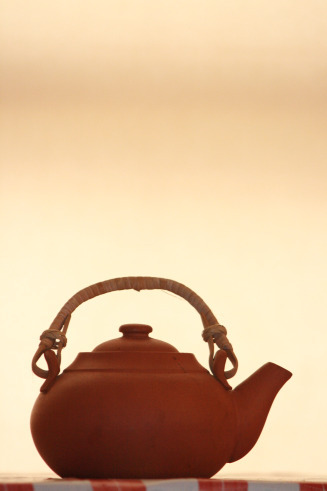 If you regularly need caffeine to be productive, you are most likely doing something wrong.
If you regularly need caffeine to be productive, you are most likely doing something wrong.The reason is simple: your body gets used to the amount of caffeine you usually eat. [11] This means that if you do not drink coffee regularly, and then suddenly drink it, you will really feel a surge of strength. But if you drink a cup of coffee every morning, the body gets used to it, and it becomes the norm for it.
After some time, to achieve the desired surge of energy, you need two cups of coffee in the morning due to the addictive effect.
Curiously, I did not experience any symptoms during my experiment, I think, for one simple reason: I usually use caffeine strategically, not constantly, while 80-90% of Americans do it daily. [12] If you want to put caffeine at the service of your productivity, you should use it strategically - when you need more concentration and energy to perform important tasks.
For example, I usually drink tea or coffee:
- in front of the gym;
- before an important interview or when I have to give a speech;
- when I want to concentrate on writing an article.
If you use caffeine not all the time, but strategically, it will help you to reduce dependence on stimulating substances and be more productive.

1. Caffeine increases concentration, but puts your creativity at risk.
It is difficult to fit all the results of research on caffeine and productivity in several paragraphs, but you can try to combine them.
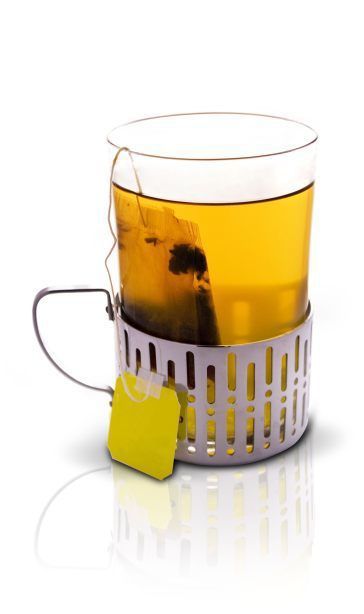 Caffeine affects your productivity in two ways: it enhances your concentration, but can create problems with creativity.
Caffeine affects your productivity in two ways: it enhances your concentration, but can create problems with creativity.- Caffeine increases concentration. It helps to focus on a few main things (instead of constantly being distracted by something new); This is useful when you need to calm down and focus on one task. [13]
- Caffeine can create problems with creativity. To be as creative as possible, you need to let your mind wander for a while. Since caffeine stimulates you to focus on the minimum number of cases or tasks, you have less time to think and search for alternative approaches to solving the problem, and it is more difficult for you to step back from work to look at it from the outside. [14]
In my opinion, productivity depends most of all on two factors - how much you can concentrate and how creative you are, because it allows you to work more efficiently and rationally. [15]
- The ability to concentrate helps you work more efficiently. The ability to control one's concentration allows one to be more rational in affairs, since the ability to manage their attention helps to give more work. A simple example: if it takes you 4 hours to write a report, when you focus your attention on it at 50%, you can spend only one hour on the same report, when you devote 95% of your attention to it.
- Creativity helps you work more efficiently. I think the more creative you are, the smarter you work, because you are able at any moment to determine what is best to do right now. This allows you to do more things and spend less time. When you let your mind wander, it often gives out pretty clever solutions to problems.
The link between caffeine and productivity is definitely ambiguous. I can give you this advice: if you need to be creative in your work, try to reduce your dependence on caffeine. But if for greater productivity you need to be focused, continue to consume caffeine.
And at the same time, do not forget how useful water can be for you.
Findings. Water is one of the most important things. My main lessons from this experiment (in descending order of importance): you drink as many as 400 calories a day; There are 8 triggers that encourage you to drink something; caffeine boosts your performance in sports; food and drink are two main things that affect your energy levels; coffee / tea also saturates the body with liquid, like water; do not forget to be grateful for all the nice things that you have; caffeine should be drunk strategically, not constantly; caffeine increases concentration, but reduces creativity. Like this!
1. Source: http://www.sparkpeople.com/resource/nutrition_articles.asp?id=1556
2. To be honest, I thought for a long time whether to include this figure in the article, since this is a big simplification. While 450 g of calories are contained in 450 g of fat, your body loses water and muscle tissue along with fat, and your metabolic rate will vary depending on your genetics. But nevertheless, I included this figure in the article with a small reservation - I think this is a good example to demonstrate how it may be beneficial for you to drink more water.
3. Source: http://www.ncbi.nlm.nih.gov/pubmed/21854160
4. Source: http://well.blogs.nytimes.com/2011/12/14/how-coffee-can-galvanize-your-workout/
5. Source: http://well.blogs.nytimes.com/2011/12/14/how-coffee-can-galvanize-your-workout/
6. Source: http://healthyeating.sfgate.com/stomach-full-stop-eating-3080.html
7. Source: http://www.webmd.com/parenting/features/healthy-beverages
8. Source: http://www.webmd.com/parenting/features/healthy-beverages
9. Source: http://www.ted.com/talks/shawn_achor_the_happy_secret_to_better_work
10. Source: http://alifeofproductivity.com/killer-morning-habit-drink-water-right-after-you-wake-up/ ; http://www.mindbodygreen.com/0-4287/10-Reasons-Why-You-Should-Drink-More-Water.html ; https://www.caring4cancer.com/go/cancer/Article.aspx?ContentId=316201
11. Source: http://www.bbc.co.uk/news/10202553
12. Source: http://www.livestrong.com/article/540327-how-does-the-body-adjust-to-caffeine-withdrawal/
13. Source: http://www.today.com/health/7-things-you-didnt-know-about-caffeine-1B6013380
14. Source: http://www.newyorker.com/online/blogs/elements/2013/06/how-caffeine-short-circuits-creativity.html
15. Personally, I am not a big fan of the terms “rational” and “effective”, because I think that because of their too frequent use, they have lost much of their value. But I think both of these concepts are important in the topic of productivity. In my understanding, rationality is doing things right, and efficiency is doing the right things.
PS from the translation editor: if you are interested in reading other articles of the author, we highly recommend to study "Zen of Early Awakenings: 10 ways to fix the morning ritual . "
Source: https://habr.com/ru/post/247791/
All Articles